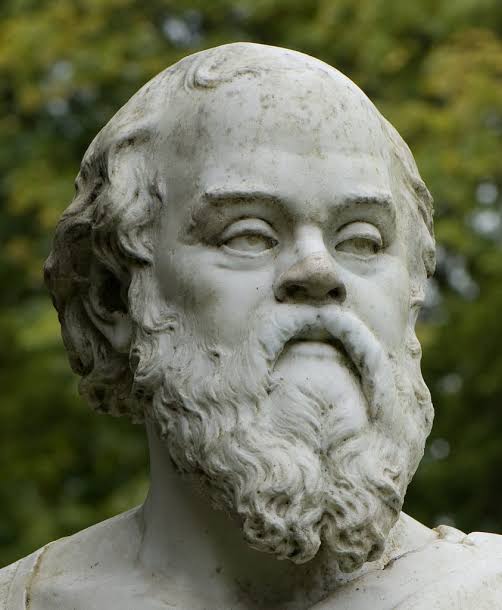Sahar Raman Deep
The Socratic dialogue, originating from the teachings and method of the ancient Greek philosopher Socrates, is a form of intellectual conversation that has deeply influenced Western philosophy. Socratic dialogues are characterized by a method of cooperative argumentative discussion that employs critical questioning to stimulate deeper thought, uncover assumptions, and guide participants toward truth. This form of dialogue, famously preserved in the works of Plato, continues to serve as a foundational approach to education, ethics, and the exploration of complex ideas.
The Structure and Purpose of Socratic Dialogue
Socratic dialogue typically involves a discussion between two or more participants, with one acting as the primary questioner, often representing Socrates himself. The discussion usually begins with a broad, fundamental question, such as “What is justice?” or “What is virtue?” The questioner, rather than providing answers, systematically asks probing questions designed to challenge the respondents’ assumptions and to clarify their definitions and arguments. The dialogue often exposes contradictions or gaps in the respondents’ views, leading them to revise their answers and think more critically.
The primary aim of the Socratic dialogue is not to reach a definitive answer but to engage in the process of inquiry. Socrates believed that knowledge begins with recognizing one’s own ignorance, and the dialogue is a method for revealing this ignorance and encouraging a deeper search for understanding. Through continuous questioning and the dismantling of superficial beliefs, the participants are guided toward greater self-awareness and intellectual humility.
Key Features of Socratic Dialogue
1. Elenchus (Cross-Examination): The heart of the Socratic method is elenchus, a technique of cross-examination used to refute or test the truth of a belief. By asking a series of questions that expose inconsistencies or contradictions in the respondent’s answers, Socrates helps them see the flaws in their reasoning. This process of refutation is not meant to embarrass but to purify the participants’ thoughts, leaving behind only those ideas that can withstand rigorous scrutiny.
2. Maieutics (Midwifery): Socrates compared his role in these dialogues to that of a midwife, helping others “give birth” to their own ideas. He believed that knowledge is not something that can be imparted directly from one person to another; rather, it is drawn out from within. The Socratic dialogue is therefore not about teaching in the traditional sense but about facilitating self-discovery and intellectual growth.
3. Irony: Socratic irony is another key element of the dialogue. Socrates often pretended to be ignorant or uncertain about the topic under discussion, claiming to be seeking knowledge from his interlocutors. This feigned ignorance serves two purposes: it encourages the other participants to engage more fully, thinking that they are in a position to teach Socrates, and it subtly exposes the weaknesses in their arguments when they struggle to defend their positions.
4. Dialectic Process: The Socratic dialogue is inherently dialectical, meaning it involves the exchange of opposing ideas to arrive at a deeper truth. Unlike a debate, where the goal is to win an argument, the purpose of dialectic is collaborative truth-seeking. Each participant’s contributions build on and challenge the others, creating a dynamic process where ideas are tested, refined, or discarded in the pursuit of clarity and understanding.
The Role of Socratic Dialogue in Philosophy and Education
Socratic dialogues, as depicted in Plato’s works like ‘Euthyphro’, ‘Meno’, and ‘Apology’, have shaped the way philosophy is practiced. They highlight the importance of questioning, critical thinking, and intellectual humility. In education, the Socratic method is used in various settings, especially in law schools, where it encourages students to think critically, analyze complex issues from multiple perspectives, and articulate their reasoning clearly.
The dialogue format also illustrates the limitations of mere opinion and the importance of striving for knowledge grounded in reason. By engaging in dialogue, participants learn not only to question others’ assumptions but also to examine their own. This process of mutual inquiry fosters a deeper appreciation for the complexity of ethical issues and encourages a more thoughtful and reflective approach to living a virtuous life.
Socratic Dialogue as Ethical Inquiry
Beyond its methodological contributions, Socratic dialogue is fundamentally an exercise in ethical inquiry. The questions Socrates asked were not abstract; they were deeply connected to how one should live a good and just life. By interrogating concepts like justice, courage, and piety, Socratic dialogues push individuals to examine their moral beliefs and the principles guiding their actions. This ethical focus underscores Socrates’ belief that philosophy is not merely an intellectual pursuit but a way of life.
The dialogues show that ethical understanding requires continuous questioning, dialogue with others, and a willingness to confront uncomfortable truths. Socratic dialogue is, therefore, not just a method but an embodiment of Socratic philosophy—a commitment to living an examined life, one in which the pursuit of truth, virtue, and wisdom takes precedence over conventional beliefs or societal norms.
Conclusion
Socratic dialogue remains a powerful tool for intellectual exploration and ethical inquiry. Through its distinctive method of questioning, refutation, and cooperative investigation, it challenges participants to think more deeply and rigorously about fundamental questions. Whether in philosophy, education, or personal reflection, the principles underlying Socratic dialogue continue to offer valuable insights into the nature of truth, knowledge, and the good life. Socrates’ legacy, preserved in the dialogues, thus endures as a reminder of the importance of questioning, self-examination, and the relentless pursuit of wisdom.



